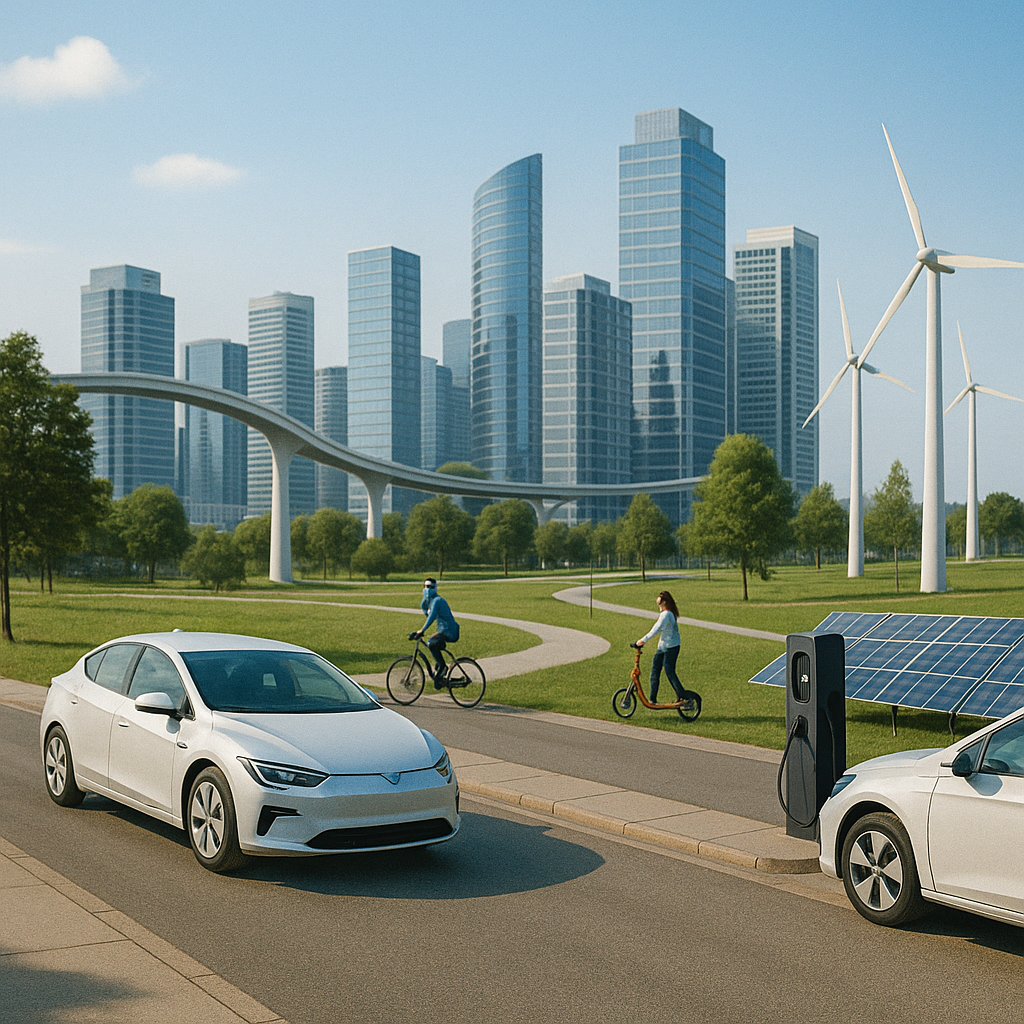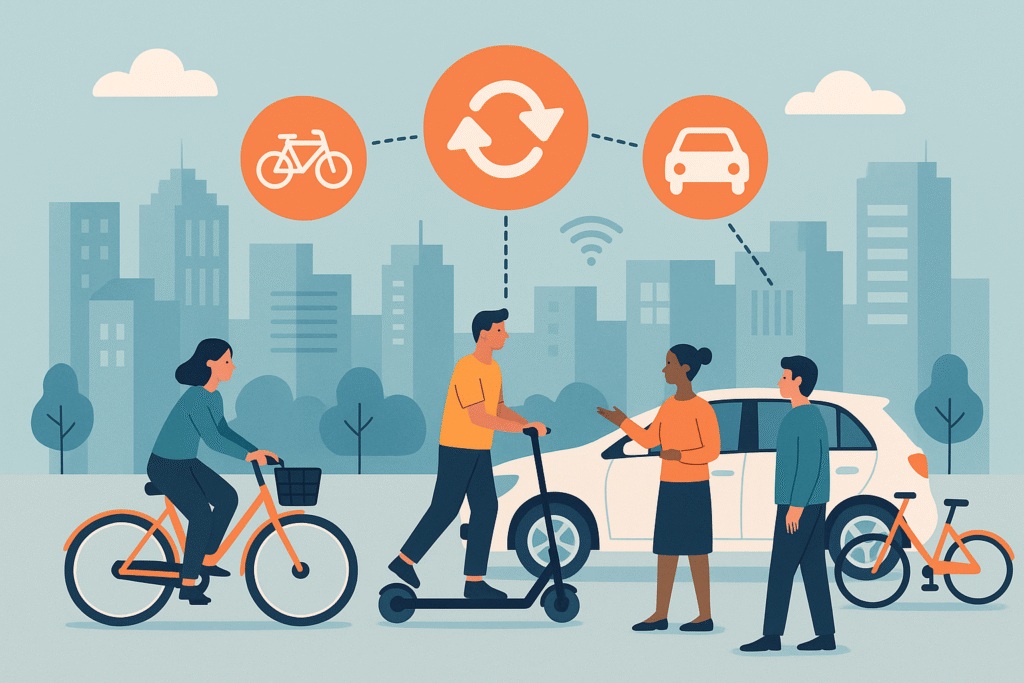Sustainable transport is no longer a niche or experimental domain: it is becoming the backbone of European urban transformation. In May 2025, a range of developments across cities and institutions have reaffirmed Europe’s determination to rethink how people and goods move. From revised emissions regulations to bold urban initiatives and pioneering technologies, this month has showcased a variety of ways in which change is being driven: through policy, innovation and citizen engagement. Here’s a curated overview of the most impactful news from the past weeks.
EU Relaxes CO₂ Emission Targets for Automakers
On May 8, 2025, the European Parliament voted to ease CO₂ emissions targets for carmakers, allowing them to average emissions over the three years from 2025 to 2027. This revision comes in response to industry concerns over the pace of EV transition, compounded by global competition and slower-than-expected consumer adoption.
The decision has sparked contrasting reactions. While car manufacturers welcomed the regulatory flexibility, many environmental groups criticized the move, warning that it may delay progress toward Europe’s 2030 climate goals.
This shift reflects the delicate balance EU lawmakers must strike between industrial competitiveness and ecological responsibility.
Edinburgh Reconsiders Congestion Charge
Nearly 20 years after its first proposal was rejected by referendum, Edinburgh is once again debating a congestion charge. The aim? To reduce private car usage by 30% by 2030 and fund urgently needed improvements in public transport.
Council leaders say the situation today is markedly different than in 2005: growing climate awareness, new low-emission targets, and increased pressure on urban infrastructure make the case for congestion pricing more compelling. Still, the idea remains politically sensitive and public opinion divided.
Edinburgh Launches “Tap on, Tap off” Tram Payments
In a more tangible step forward, Edinburgh officially launched its new “Tap on, Tap off” (ToTo) contactless payment system on May 19. The technology allows commuters to tap their card or mobile device at the start and end of a tram journey, with the system automatically applying the best fare based on travel frequency.
This move is part of a wider strategy to modernize the city’s public transport system, reduce ticketing barriers, and make sustainable mobility more accessible to both residents and visitors. Authorities hope the ease and flexibility of the ToTo system will encourage more people to choose public transport over private cars.
Paris Introduces Car-Sharing Lane on the Périphérique
Paris continues its push to reduce traffic and emissions with a dedicated car-sharing lane on the périphérique. This new policy aims to prioritize high-occupancy and shared vehicles during peak hours, discouraging solo drivers and easing congestion.
Infractions are subject to a €135 fine, and enforcement is managed through smart camera technology. The lane forms part of a broader strategy that includes expanding low-emission zones and investing in public transit infrastructure, reaffirming Paris’s role as a frontrunner in urban mobility reform.
France to Pilot the First Electric Highway Segment
In one of the most exciting technological initiatives of the month, France confirmed its plan to launch a pilot segment of an “electric highway” on the A10 autoroute. The project uses inductive charging coils embedded in the road surface to wirelessly power electric vehicles as they drive, potentially eliminating the need for frequent charging stops.
The trial, expected to begin in late 2025, will test the feasibility of scaling such technology nationwide. If successful, it could play a significant role in supporting long-distance EV travel and reducing range anxiety, a major barrier to electric vehicle adoption.
Micromobility and Transport Poverty: A Social Climate Priority
Shared bikes, e-scooters, and micromobility services aren’t just for tech-savvy urbanites. As argued by Cycling Industries Europe and Micro-Mobility for Europe, these tools can directly address transport poverty by providing affordable and flexible mobility for vulnerable groups.
In May, both organizations jointly called for the creation of a Social Climate Fund to help integrate micromobility into EU-level sustainability and equity strategies. Their proposal includes subsidies for low-income users and targeted investments in underserved areas. Micromobility, they argue, can be a low-cost, high-impact solution to transport inequality.
Final Thoughts
The stories from May 2025 illustrate how Europe is driving the shift to sustainable mobility; not just through grand gestures, but through strategic and often localized action. Whether it’s rethinking road pricing, investing in inclusive mobility or testing groundbreaking technologies, one theme is clear: the future of transport is not only electric, but shared, smart, and deeply human-centric.






